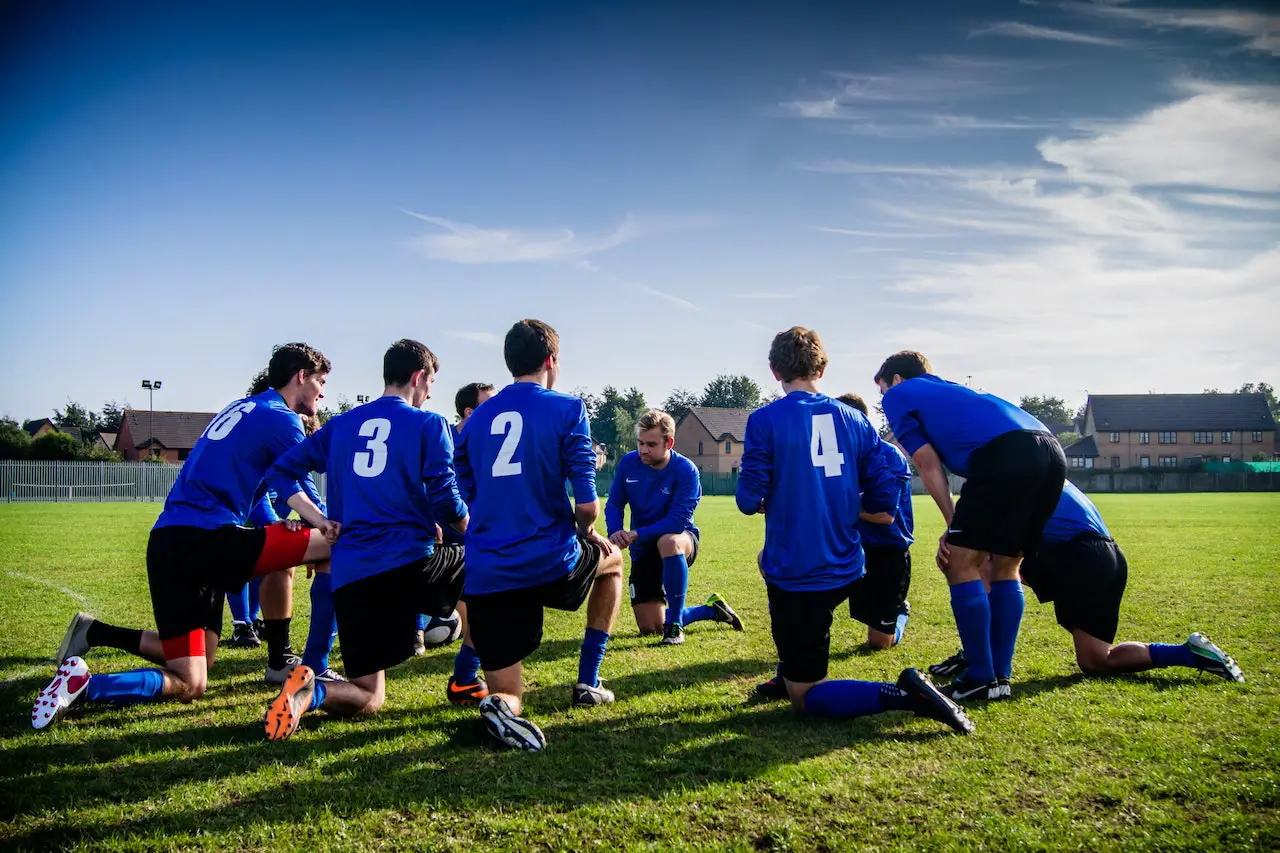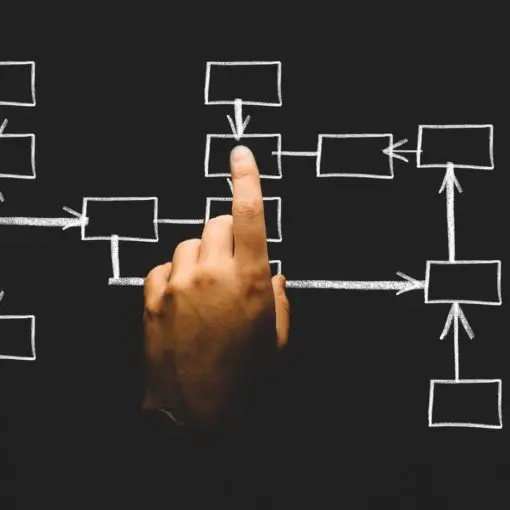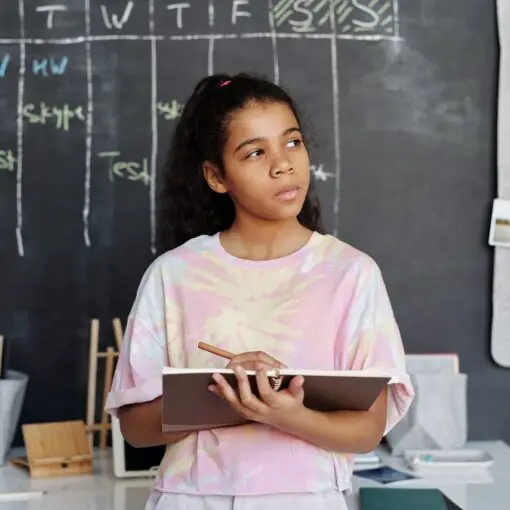Participating in sports is known to have numerous benefits, ranging from physical fitness to fostering social skills and teamwork. However, sports can also play a vital role in developing critical thinking skills, which are essential for problem-solving and decision-making in various aspects of life. Understanding the link between sports and critical thinking can help individuals choose the right athletic activities to enhance their cognitive abilities.
Sports that involve strategy, analysis, and adaptability are particularly effective in developing critical thinking skills. Engaging in these activities requires individuals to think on their feet, constantly evaluating their strategies and adjusting them according to their opponents and the current conditions. This encourages players to think critically, promoting cognitive growth, and honing their decision-making abilities.
Key Takeaways
- Sports participation can enhance critical thinking and problem-solving abilities
- Strategic and adaptable sports are especially effective for developing cognitive skills
- The combination of education and sports involvement can foster overall growth and success
Understanding Critical Thinking
Critical thinking is the ability to think clearly and rationally about what to do or believe. It involves engaging in reflective and independent thinking, without letting emotions or biases affect the decision-making process. In the context of sports, critical thinking can play a vital role in an athlete’s development and success, as it allows them to analyze their performance, strategize, and adapt to different situations on the field.
One of the key aspects of critical thinking in sports is understanding the rules of the game. Like a soccer player needs to know the rules of soccer, each sport demands a specific set of guidelines and principles. Athletes must not only be familiar with these rules, but also be able to apply them during gameplay, making split-second decisions based on the available information.
In addition to knowing the rules, critical thinking in sports often requires analyzing individual and team performance. Athletes need to be able to assess their strengths and weaknesses, as well as identify areas for improvement. This involves observing their actions during a game, evaluating their choices, and understanding the consequences of the decisions they made. This process allows athletes to learn from their experiences and make necessary adjustments for future games.
Another important aspect of critical thinking in sports is the ability to collaborate with teammates and coaches. Athletes often need to work together to achieve a common goal, requiring effective communication, problem-solving, and adaptability. This includes understanding team dynamics, listening to different perspectives, and incorporating feedback from others into their approach to the game.
Finally, critical thinking involves developing resilience and mental toughness. Athletes face various challenges and obstacles throughout their careers, and being able to persevere and maintain focus during difficult situations is crucial. Through critical thinking, athletes can reflect on setbacks, learn from them, and use this knowledge to improve their performance in the future.
Overall, critical thinking in sports is a multifaceted skill that can significantly contribute to an athlete’s development and success. By understanding and practicing these concepts, athletes can unlock their full potential and excel in their chosen sport.
Role of Sports in Developing Critical Thinking
Decision Making
In sports, critical thinking plays a significant role in decision making. Athletes must make quick, accurate decisions on the field or court to achieve success. For instance, a basketball player must decide when to pass or shoot the ball, while a soccer player needs to choose the best way to get around an opponent. Developing critical thinking skills in sports enhances the athlete’s ability to make informed decisions under pressure, which ultimately contributes to their success.
Problem Solving
Another aspect where sports contribute to critical thinking is in problem-solving. Athletes often face challenges and obstacles during gameplay that require quick thinking and strategizing. For example, a tennis player must constantly adapt to their opponent’s play style and adjust their strategy accordingly. Creating and executing new plans to overcome challenges helps foster an athlete’s problem-solving abilities, which are transferable to other areas of life.
Self-Reflection
Participating in sports also encourages self-reflection, a vital component of critical thinking. Athletes must analyze their performance after a game, identifying their strengths, weaknesses, and areas for improvement. This process of self-reflection not only helps them grow as an athlete but also strengthens their critical thinking skills. By developing a better understanding of oneself, athletes are better equipped to address personal challenges and make informed decisions.
Judgment
Lastly, sports help develop judgment skills. Athletes are constantly faced with situations that require them to evaluate their options and make the best choice. For example, a football player must decide which play will result in the most significant advantage for their team. Exercising judgment on the field or court enables athletes to discern between different possibilities and choose the most effective course of action, strengthening their critical thinking abilities in the process.
In conclusion, sports play a crucial role in developing critical thinking skills, including decision making, problem-solving, self-reflection, and judgment. Participating in athletic activities helps individuals grow personally and professionally, as these skills can be applied in various aspects of life outside the sports arena.
Sports for Critical Thinking
Chess
Chess is a classic sport that demands critical thinking and strategic planning. Players must anticipate their opponent’s moves and adjust their own strategies accordingly. Bias can significantly impact a player’s decision-making process, leading to suboptimal moves. While playing chess, it is essential to maintain a clear head and evaluate the validity of each move based on the current board situation. Moreover, chess fosters communication between players as they discuss strategies and analyze their games.
Basketball
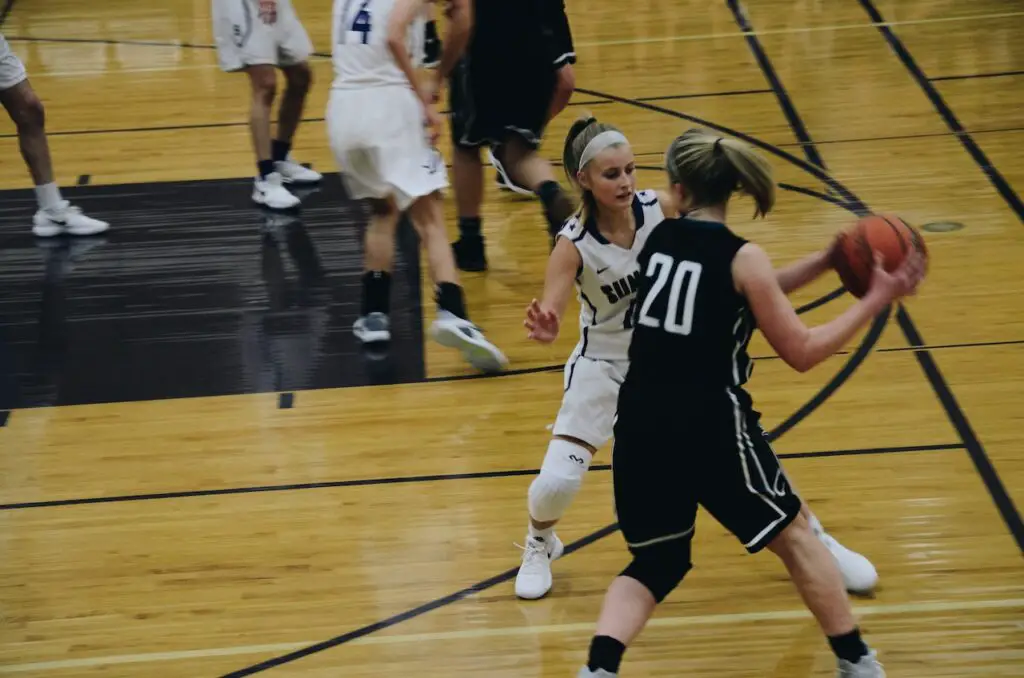

Basketball is an exciting and dynamic sport that provides ample opportunities for critical thinking. Players must understand the game’s rules and strategies, evaluate the strengths and weaknesses of their opponents, and adapt their gameplay accordingly. Communication skills are crucial in basketball as players must share information quickly and clearly with their teammates. Being aware of personal bias and considering the opinions of others on the team can help to promote teamwork and develop a stronger overall strategy.
Soccer
Soccer is a popular sport enjoyed by millions of people worldwide, requiring both physical prowess and mental agility. Critical thinking is essential for success in soccer, as players must anticipate opponents’ movements, keep track of multiple variables, such as the ball’s position, and make split-second decisions. Effective communication during a soccer match is crucial, as players rely on one another to devise and execute strategies. Soccer encourages individuals to consider various opinions and develop a well-rounded approach to the game.
Gymnastics
Gymnastics is a sport that demands both physical and mental prowess. While the physical aspect is easily recognized, critical thinking plays a significant role in gymnastics as well. Gymnasts must carefully assess their routines and determine the most effective course of action for each element. Recognizing personal biases and focusing on the validity and worth of each move can help gymnasts improve their performance. Additionally, gymnastics requires effective communication with coaches and teammates to develop and fine-tune routines.
Fencing
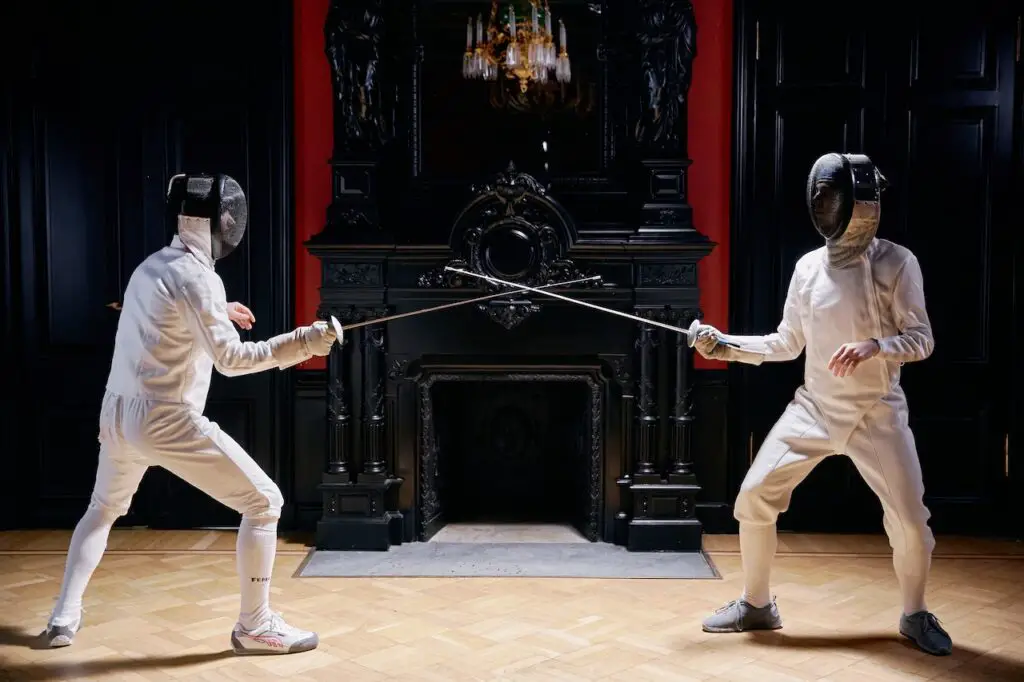

Fencing is a combat sport that requires excellent reflexes, focus, and decision-making skills. Critical thinking comes into play as fencers must anticipate and counter their opponent’s moves while devising their own strategies. Recognizing personal bias can help fencers make more objective decisions during a match, and considering various opinions can lead to a more robust overall strategy. Communication is an essential component in fencing, as fencers must convey their intentions to their teammates and coaches clearly and confidently.
The Art of Coaching and Critical Thinking
Coaching Decisions
A coach plays a significant role in the development of an athlete’s critical thinking skills. They assess the athlete’s performance, analyze their strengths and weaknesses, and provide feedback to help the athlete improve. One of the key aspects of coaching decisions involves understanding and implementing trends in the sport. By staying updated on the latest ideas and trends, coaches can adapt their training routines and guidelines for the betterment of the athlete’s performance.
Another important aspect of coaching decisions is related to media management. Coaches need to be aware of how athletes are portrayed in the media and the impact it can have on their performance and mental health. They must develop strategies to protect the athlete from undue pressure or criticism, ensuring a nurturing environment for growth.
Coaching Strategies
Coaches employ various strategies that can enhance their athlete’s critical thinking abilities. Some of the effective coaching strategies include:
-
Setting realistic goals: Coaches should help athletes set achievable targets that are built upon their current abilities and align with their long-term aspirations. This encourages the athlete to think critically about their performance and identify areas for improvement.
-
Emphasizing skill development: Coaches should guide athletes through structured routines and exercises designed to improve their skills and abilities. By focusing on skill development, coaches can help athletes build a strong foundation for success in their sport.
-
Encouraging self-reflection: Asking athletes to assess their own performance and analyze their strengths and weaknesses promotes critical thinking and self-awareness. Coaches should encourage their athletes to take responsibility for their progress and develop a deep understanding of their abilities.
-
Promoting problem-solving: Coaches can challenge athletes by presenting them with tactical problems or scenarios within their sport. This triggers their critical thinking abilities, allowing them to come up with creative solutions and strategies based on logic and reasoning.
By incorporating these strategies into their coaching approach, coaches can effectively guide their athletes in developing critical thinking skills, ultimately enhancing their overall performance in the sport.
Critical Thinking in Sport Science
Data Analysis in Sports
Critical thinking in sport science starts with understanding and analyzing data. Data analysis is an essential skill that can help athletes and coaches make informed decisions about training, performance, and strategies. By evaluating data accurately, sport scientists can identify patterns, trends, and factors that impact performance. By applying these insights to training and competition, athletes can effectively target their efforts for maximal gains.
In sports, data can come from various sources, such as performance statistics, player tracking technologies, and physiological measurements. Critical thinking involves assessing the validity of these data sources and interpreting the collected information meaningfully. This includes understanding the limitations of the data and recognizing potential biases that may skew the results.
Theories and Concepts in Sports
Sport science is built upon various theoretical frameworks and concepts, which guide practitioners in training and performance strategies. Critical thinking in this area involves evaluating the validity of these theories and understanding how they apply to specific situations or athletes. For example, periodization is a popular training concept that involves organizing workouts and progression into specific cycles to target particular aspects of performance. A critical thinker will question the underlying principles, compare it to alternative methods, and consider its appropriateness for a given context.
Furthermore, critical thinking in sport science involves staying up-to-date with the latest research and findings in areas such as exercise physiology, biomechanics, and psychology. This requires evaluating the strength of evidence behind these findings and determining how they can be effectively implemented into practice.
Misinformation and Bias in Sports
In sport science, misinformation and bias can come from various sources, and a critical thinker should be able to identify and counteract them. These biases can stem from personal experiences, confirmation bias, or even the influence of commercial interests in promoting specific products or methods. As a result, it becomes crucial to approach any sports-related information with a healthy skepticism and question its validity.
To tackle misinformation and biases within sports, critical thinkers should engage in open discussions, consider alternative viewpoints, and seek out reliable sources, such as peer-reviewed research articles. By actively questioning assumptions and challenging accepted wisdom, sport scientists and practitioners can develop more effective and evidence-based solutions for enhancing athletic performance.
By utilizing critical thinking in sport science through data analysis, scrutinizing theories and concepts, and addressing misinformation and biases, sports professionals can make well-informed decisions for optimal performance outcomes.
Education and Sports
Curriculum Development
In the context of sport, education plays a crucial role in developing critical thinking skills. One way to incorporate critical thinking into sports education is through curriculum development. By including activities and lessons that focus on analyzing situations and making informed decisions, educators can help students improve their critical thinking abilities. For example, by incorporating case studies, written exercises, and group discussions, students can engage with different subject areas and develop a deeper understanding of the sport.
Critical thinking in sports education can also be fostered through textbook selections that emphasize problem-solving and analytical skills. These texts can provide students with relevant examples and scenarios, allowing them to apply their knowledge in the context of sport. Additionally, incorporating tests and other assessment tools that require students to analyze situations and make decisions can further develop critical thinking skills.
Higher Education Involvement
In higher education, there is an increasing emphasis on incorporating critical thinking skills within sports-related programs. Through the study of various disciplines, such as sport management, sport ethics, and sport philosophy, students are encouraged to analyze and discuss complex issues within the sports world.
Institutions of higher education can also play a significant role in enhancing critical thinking in sports by promoting interdisciplinary collaboration. For instance, involving faculty from multiple subject areas, such as sociology, psychology, and business, can provide students with diverse perspectives on how to approach problems and make informed decisions in the sports industry.
Additionally, higher education institutions can contribute to the development of critical thinking skills in sports by offering research opportunities and encouraging students to critically analyze academic articles in the field. By exposing students to various methodological approaches and contemporary issues in sports, higher education can help nurture a generation of sports professionals with strong critical thinking abilities.
Conclusion
Benefits of Sports for Critical Thinking
Participating in sports has numerous advantages when it comes to developing critical thinking skills. Athletes constantly face situations where they must quickly assess, adapt, and decide on a course of action. This helps them strengthen abilities such as observing, feeling, imagining, and experimenting.
Failure in sports can be an excellent teacher, as it urges athletes to evaluate their performance, identify areas for improvement, and develop better tactics for future competitions. Furthermore, sports help nurture an environment where ideas can flourish, enabling athletes to think creatively and explore innovative strategies to overcome challenges.
Future Trends
As the importance of critical thinking in sports becomes more widely recognized, it is expected that future trends will place greater emphasis on mental training, along with physical preparation. Sport management students, for example, are now asked to look beyond the statistics and see sports as social constructs with significant impact on society.
With the advent of technology, data analysis, and advanced coaching methodologies, there will likely be a growing focus on the cognitive aspect of sports. This will further cement the relevance of critical thinking in athletic success and contribute to the continued development of mental resilience among sports professionals.

